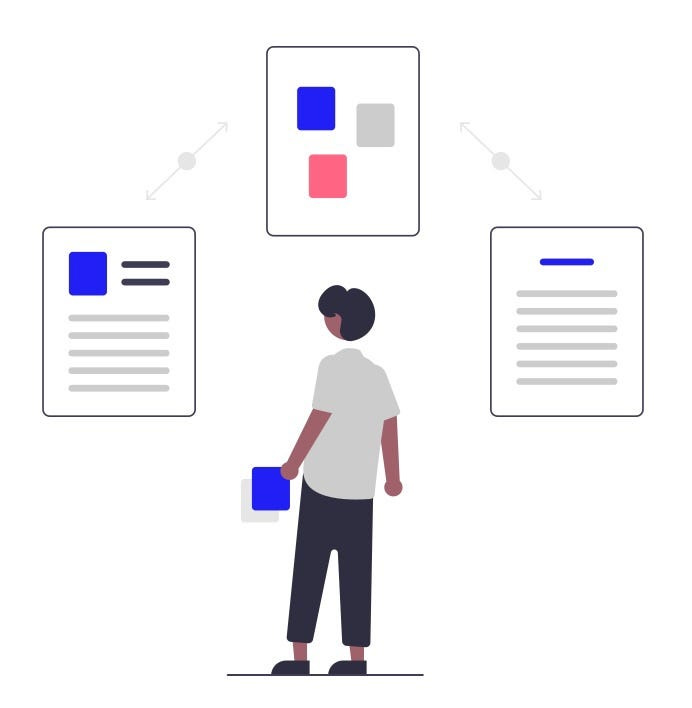Stay Technical While Leading Your Team
Approach every new issue, idea, or question as an opportunity to learn something new.

Being a tech-savvy manager is important because engineers have high expectations of their leadership team. They want you to understand their work, expect you to speak their language, and provide technical guidance.
So, how do you stay technical while leading a team?
One school of thought is to be a manager who also codes. However, another idea is that becoming a manager requires shifting focus from coding to strategic planning, team management, and creating a productive work environment.
Initially, I believed in the first option. I wanted to split my time between individual contributor (IC) and manager responsibilities—25% for engineering tasks such as coding and 75% for team management. However, my skip-level manager held a different belief and advocated for the second option. I had to choose between IC or manager.
Ultimately, I chose to become a manager. But I sought guidance from a Principal Engineer on how they retained their technical expertise. In their role, they actively participated in designing and developing innovative solutions, influenced technical project direction and organizational strategy, and mentored fellow engineers. But they were rarely a part of project implementation. So, I asked how they cultivated and nurtured their skills to remain a subject matter expert (SME).
They approached every new issue, idea, or question as an opportunity to learn something new. Their response was enlightening. They emphasized the power of curiosity as the driving force behind their ability to learn, grow, and develop their skills continually.
The concept of staying curious resonated with me. By embracing curiosity, you can continuously learn new things and leverage newfound knowledge and experience to make informed decisions and provide practical guidance to your team.
However, this can be challenging among many tasks, team support, and customer demands.
In this article, I will share practical strategies to implement curiosity in your managerial role. By following these strategies, you can stay tech-savvy while leading a team.
Don’t multitask during meetings
This is more challenging than it sounds. Your schedule is likely filled with calls and tasks that demand your attention.
With little time between calls, attending a meeting while tackling other assignments, such as responding to emails, may seem tempting and productive.
However, when I was researching this topic, I found an article by BetterUp that makes a case for the benefits of single-tasking. One of the biggest benefits are making less mistakes and improving your focus.
Instead of becoming the person who constantly says, “Sorry, I wasn’t listening. Can you repeat that?”, pay attention during the meeting to learn new concepts and ideas, follow the conversation, and actively participate in discussions.
Alternatively, if you need that time to work on a more critical task, you can decline the invite or ask your team member to attend and take notes.
Ask questions during 1:1s
Your ability to listen attentively to your team members is essential. You also have to complement your listening with asking follow-up questions.
Elaine Gibson, license therapist, describes this as Share-Be Responsive, which is the practice of listening and responding to the other person so they feel heard.
Consider this scenario: when a team member opens up about their struggles in coding a new feature, it can inadvertently convey a lack of care or interest if you fail to acknowledge their efforts or inquire further. Moreover, not asking questions deprives you of valuable opportunities to learn something new and broaden your understanding.
Typically, I start every 1:1 by encouraging my team members to share what’s on their mind, which allows them to express any concerns, ideas, or questions they may have. Then we discuss their ongoing projects, which creates an opportunity for deep technical conversations centered around their work.
Narrowing the agenda items to encompass these aspects can help you have engaging and insightful discussions. It also demonstrates your commitment to their growth and success while allowing you to understand their technical challenges and accomplishments.
Read 1-pagers with curiosity
1-pager: a document that describes an idea, I initiate, or plan to implement something new.
As a manager, you will be asked to review 1-pagers and share feedback. But with all of the other urgent tasks you have, reading these documents can feel like a burden.
I’m struggling with this right now. I typically miss the window to provide feedback because of the amount 1-pagers my department outputs. However, I recently realized that I’m missing out on an opportunity.
What opportunity? Well, Ardy Dedase describes reviewing documents as a chance to dive deep into the blueprint of the services your team will own. Therefore, I plan to prioritize and schedule dedicated time to read and provide feedback.
If you struggle with prioritizing reading 1-pagers, try scheduling time to read the document and approach it with a genuine desire to learn and explore the insights it offers. Adopting this perspective will make you more likely to extract meaningful information, identify improvements, and understand how it may impact your team.
Leverage your teams expertise
You no longer need to shoulder all the responsibilities yourself. Instead, you can rely on your team members to accomplish tasks more effectively.
This lesson became clear to me during a postmortem session. Our team led the root cause analysis (RCA) on a platform that I was not familiar with. Initially, I felt like I couldn’t contribute to the RCA. However, my manager reminded me I could leverage my experience with other platforms to provide guidance and ask relevant questions.
Sarah Drasner, in her book, Engineering Management for the Rest of Us, beautifully sums it up: “You don’t have to code it all yourself; you need to articulate why the code is necessary and what it will need to do to succeed. Trust them to figure out how and consult when they need guidance.”
With this mindset, I felt empowered to contribute by providing guidance, asking questions about the platform, and delegating tasks accordingly.
By trusting yourself, collaborating with your team members, and asking for help, you’ll expand your knowledge and get more done.
Continuous learning
Over time the above strategies won’t be enough. Your knowledge will become outdated and you’ll need to spend some time skilling up.
A few ways you can do that is by taking a course, attending conference, listening to a Podcast, or getting hands-on with your team’s work. But you want to pay attention to your core responsibilities, so set an end date. For instance, schedule three days for you to attend a conference.
The goal of this training is to help brush off that rusty feeling, so you can lead your team effectively & communicate with your team.
Summary
As your team grows, your focus will shift from coding toward supporting and developing your team members. To maintain your tech skills, you must approach every new issue, idea, or question as an opportunity to learn something new. It’s also essential to be honest about what you don’t know and ask for help when necessary.






This is a great read! Overtime we've been conditioned to multi-ask or you're not productive, but you provide great tips on why and how to be a true active-listener!